Mike Flynn named Fawwaz T. Ulaby Collegiate Professor of Electrical and Computer Engineering
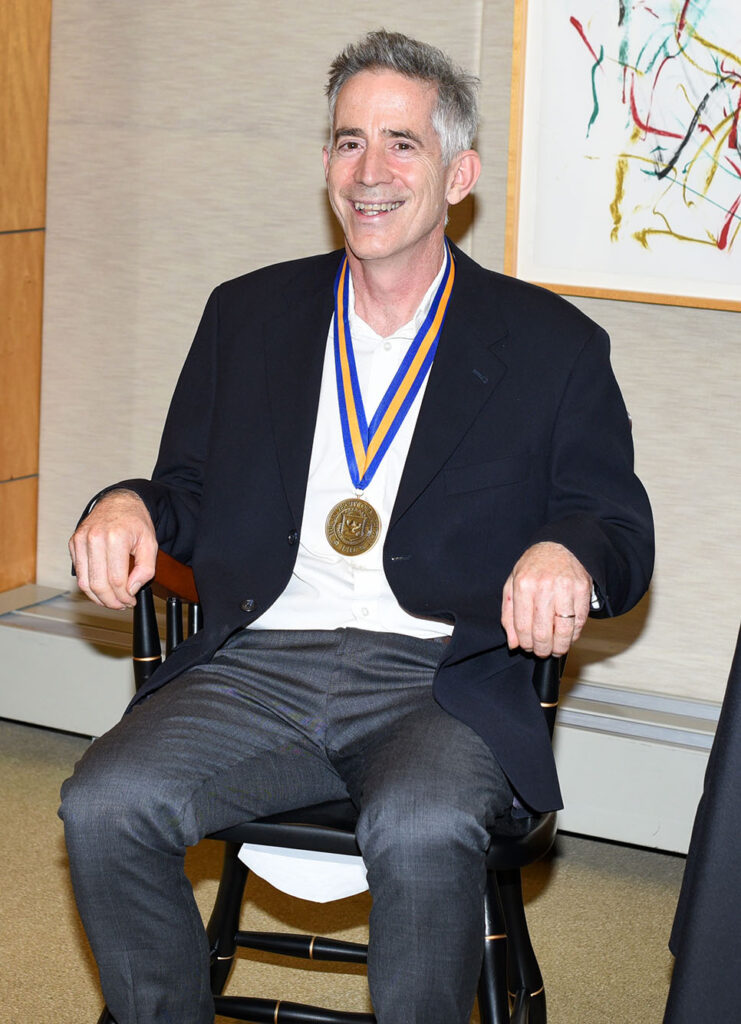
Mike Flynn was named the Fawwaz T. Ulaby Collegiate Professor of Electrical and Computer Engineering in recognition of his outstanding contributions in the areas of research, education, and leadership.
“Fawwaz inspires me because he is the perfect professor,” Flynn said. “Not only does he have an amazing research track record, but he also excels in service and is a tremendous educator. His genuine concern for students sets an example for us all.”
Flynn is one of the world’s premier scholars in the area of analog and mixed-signal integrated circuits and systems, analog-to-digital conversion (ADC), and other interface circuits, from high-speed serial transceivers to radio frequency transceivers and sensors. His pioneering research has improved the performance and energy efficiency of analog-digital interfaces and transformed the field.
Flynn’s research group was among the first to incorporate an efficient ADC in a complementary metal-oxide semiconductor radio frequency identification tag to make a radio frequency powered sensing system. He developed a wireless sensor network to monitor the integrity of bridges and roads and a super-regenerative receiver and low-power radio architecture with an on-chip antenna, moving the field closer to full integration of radios, digital processing, sensors and interface circuits. A single-chip closed-loop stimulation device he designed showcased the potential of integrated brain-machine interface circuits to improve the treatment of Parkinson’s and other diseases.
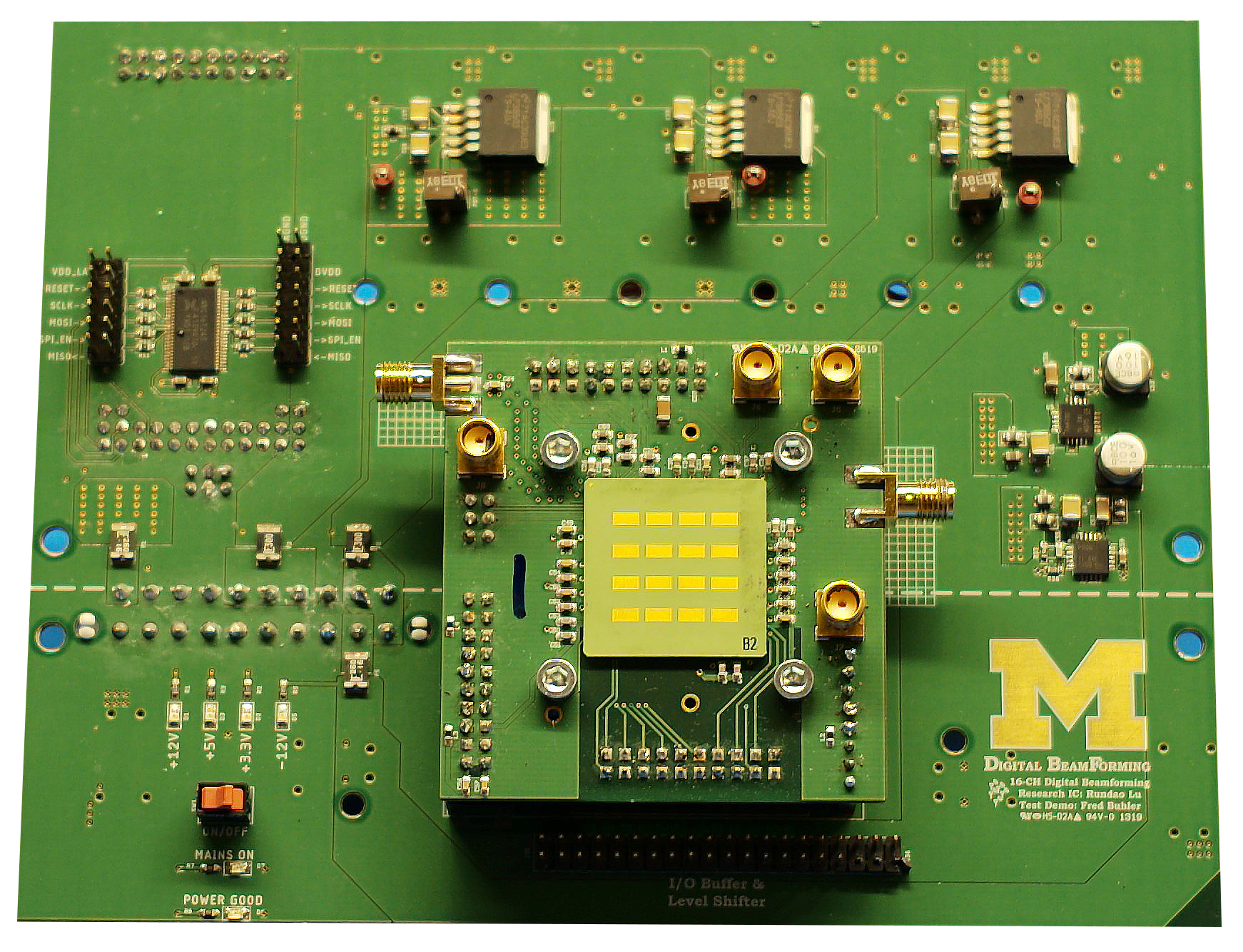
Recently, Flynn and his group built a 28GHz millimeter wave digital beamformer, with a custom-designed antenna array consisting of 16 antennas in single integrated circuit. It is the first known single-chip system to do MMW digital beamforming. In part because it’s a single chip, the power and size are better than current digital systems by an order of magnitude. And because it’s digital, the signal can both be pointed in any direction, and can “listen” in from four different directions at once. That means, for example, the device could track four airplanes or communicate with four satellites at the same time.
Flynn also takes advantage of analog and mixed-signal circuits to advance computing. For example, analog computing could lead to artificial intelligence processing directly on small, energy-constrained devices such as smartphones and sensors. Flynn’s group working with students from Zhengya Zhang and Wei Lu’s groups built the first programmable memristor computer. More recent work by Flynn and Zhang’s students, presented at the 20222 IEEE VLSI Symposium demonstrated record performance for an analog computing system.
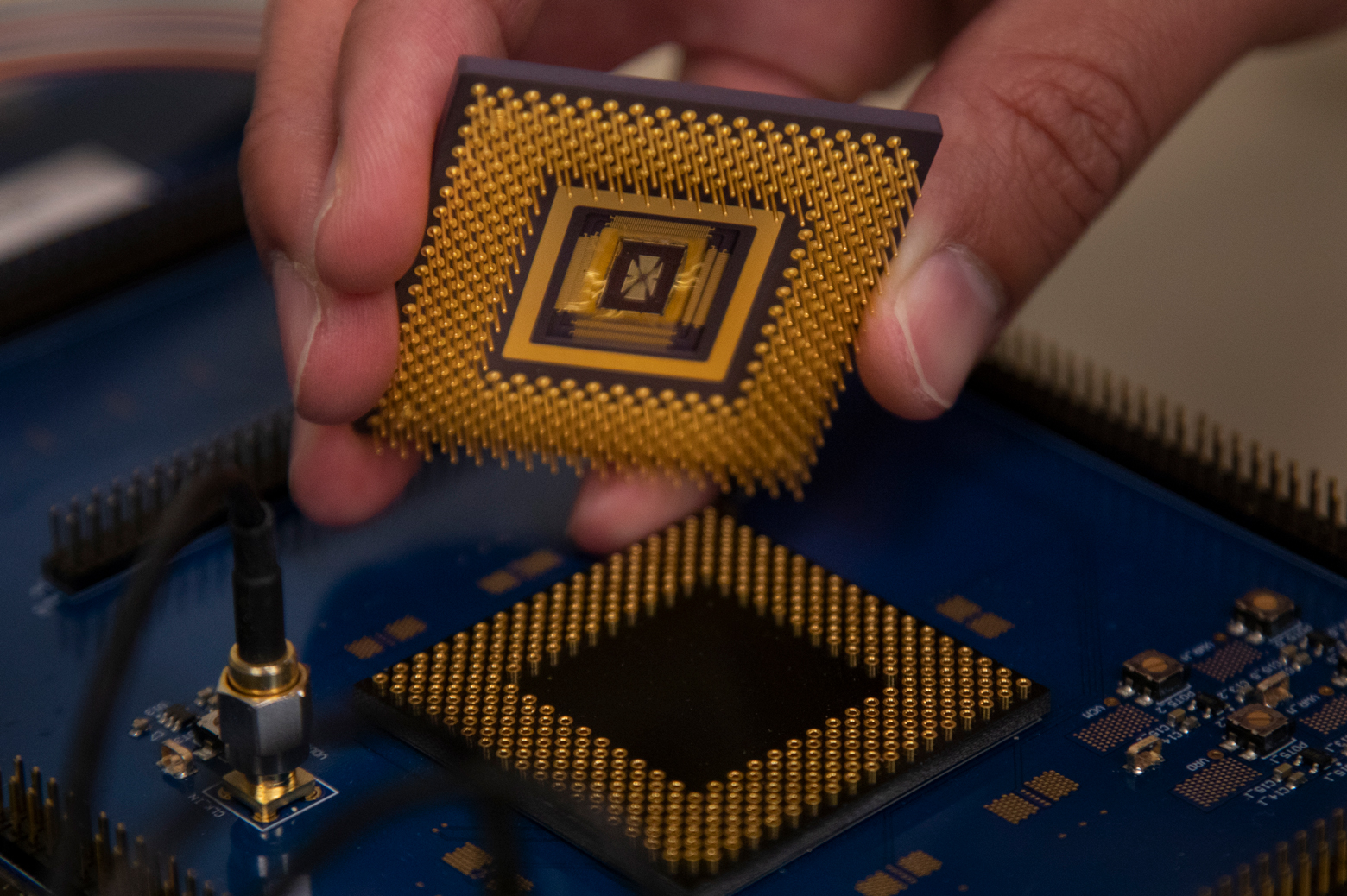
Flynn is also recognized for making major contributions to the department’s graduate education as a whole while serving as the Associate Chair for Graduate Affairs for Electrical and Computer Engineering (ECE) from 2016 to 2018. He developed an online report card system to track the graduate students’ academic progress, and proactively sought faculty inputs early on in the process. He streamlined the process of qualification exam evaluations and doctoral offers, leading to increased transparency and efficiency. He also created a number of innovative strategies that helped dramatically increase the number of domestic and underrepresented student applicants to ECE.
In particular, his initiative to tour Midwest schools to promote Michigan ECE quadrupled the number of annual graduate school applications. He also created an MS fellowship program to incentivize domestic applicants, especially underrepresented students, to pursue graduate education.
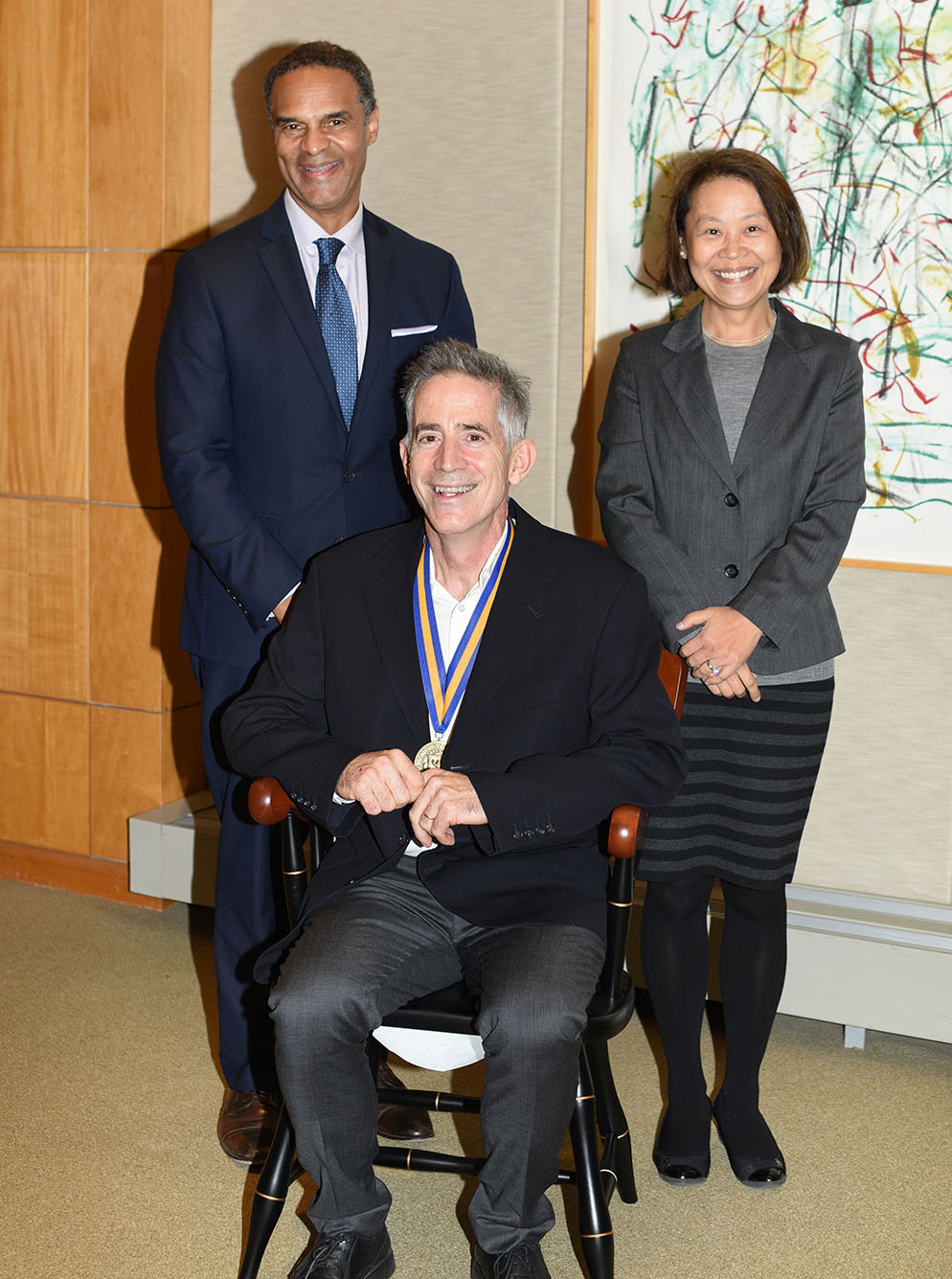
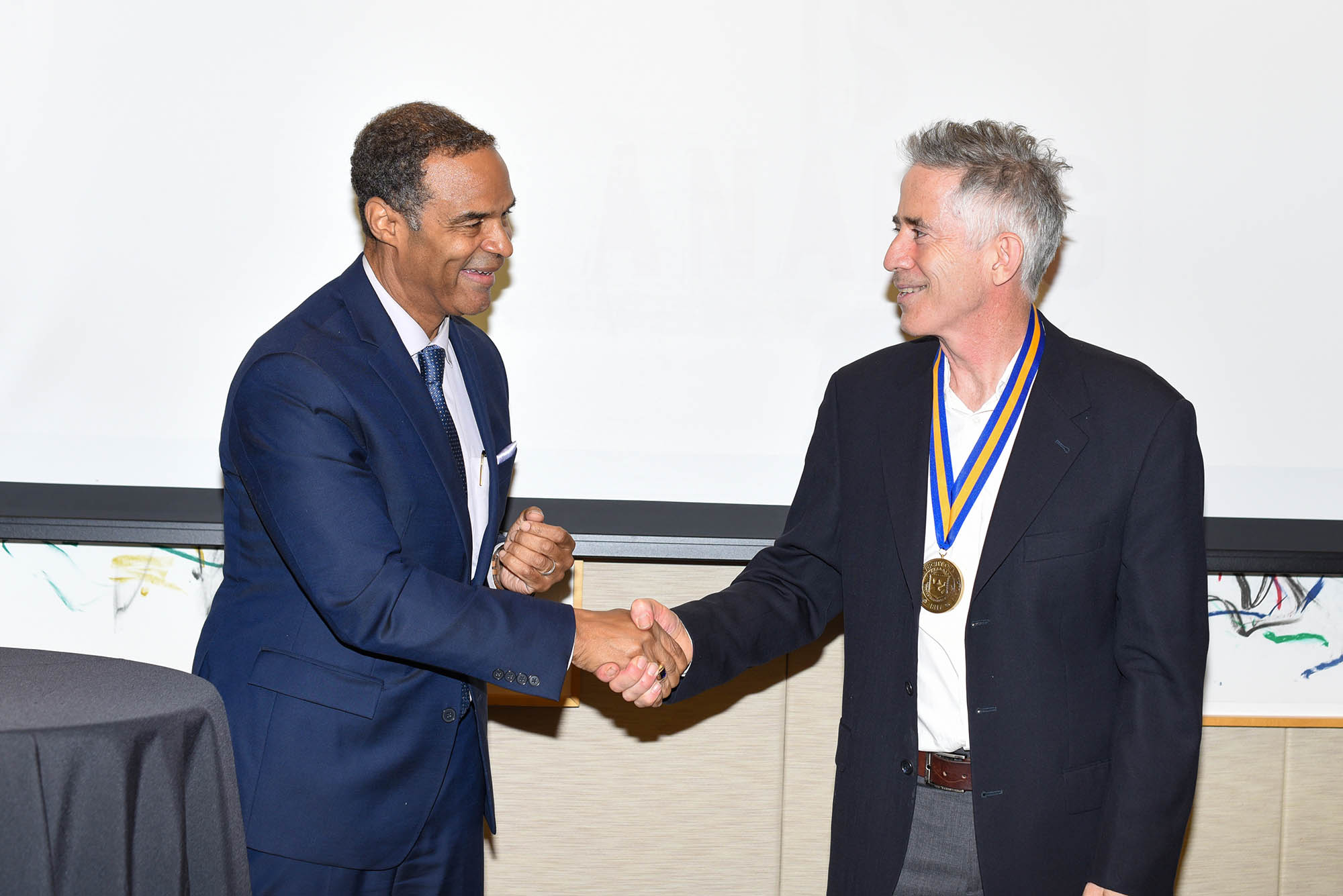
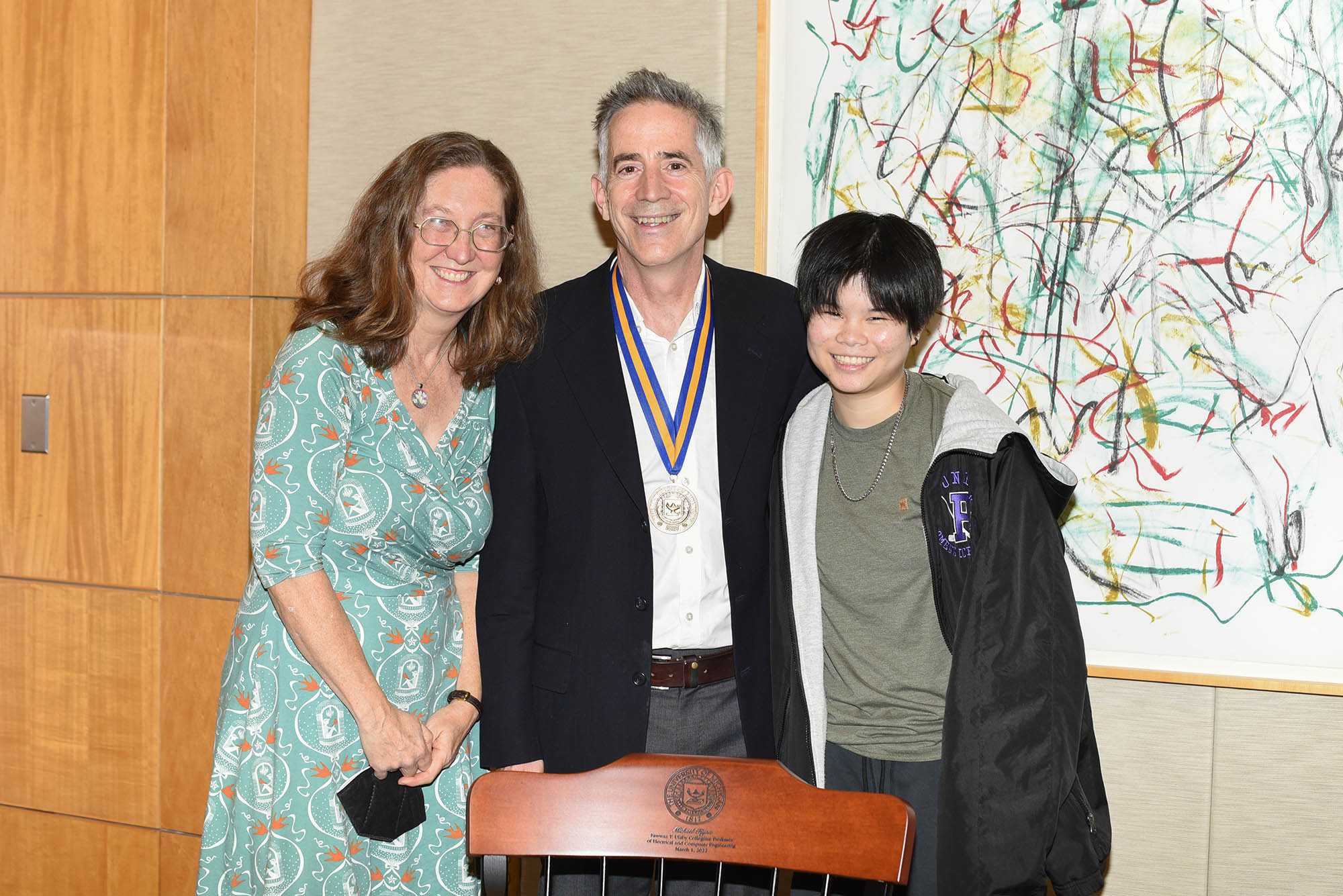
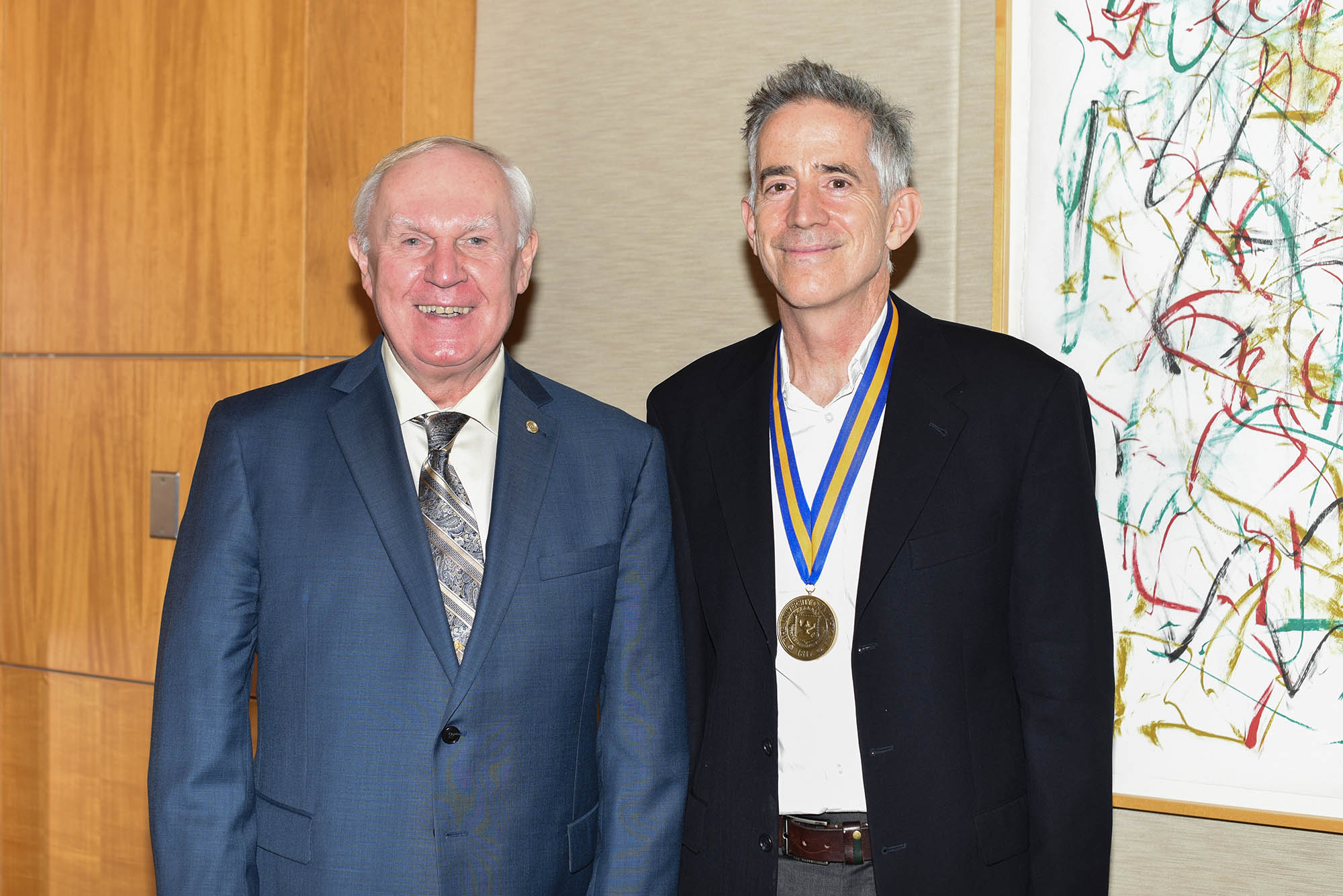
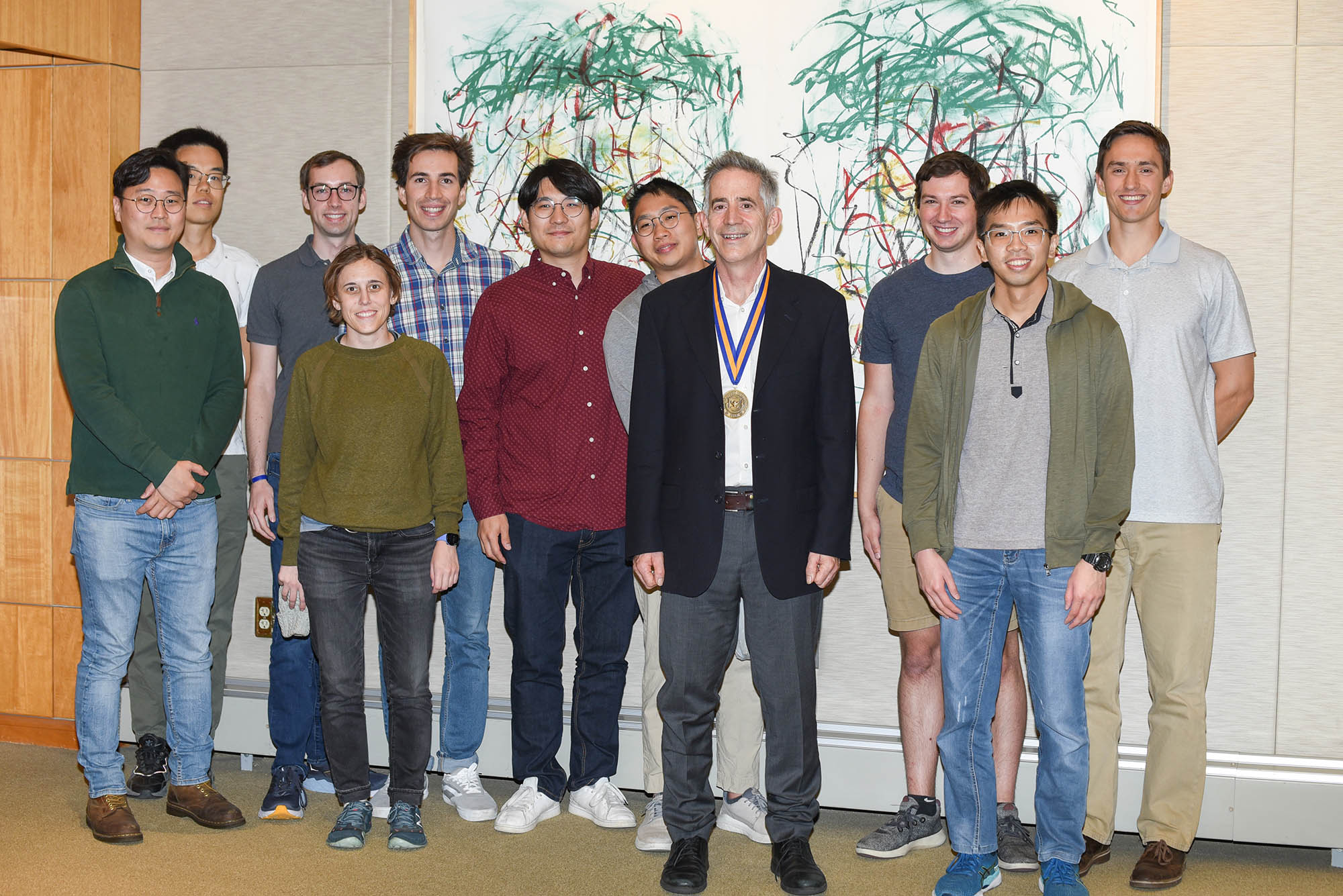
Flynn has received numerous awards, including the University of Michigan Faculty Recognition Award, the College of Engineering John F. Ullrich Education Excellence Award, College of Engineering Ted Kennedy Family Team Excellence Award, and the department’s Outstanding Achievement Award. He’s also received a Guggenheim Foundation Fellowship and an NSF CAREER Award. He is a Fellow of IEEE, he served as the editor-in-chief of the IEEE Journal of Solid-State Circuits, and he is a former Distinguished Lecturer in the IEEE Solid-State Circuits Society. In addition, he has published two book chapters and more than 100 journal and conference papers. He’s received $15 million in research funding from the National Science Foundation and industry.
Flynn earned a PhD in Electrical Engineering in 1995 from Carnegie Mellon University. He worked at Texas Instruments and at Ireland’s Parthus Technologies and the National University of Ireland prior to joining the engineering faculty at U-M in 2001.
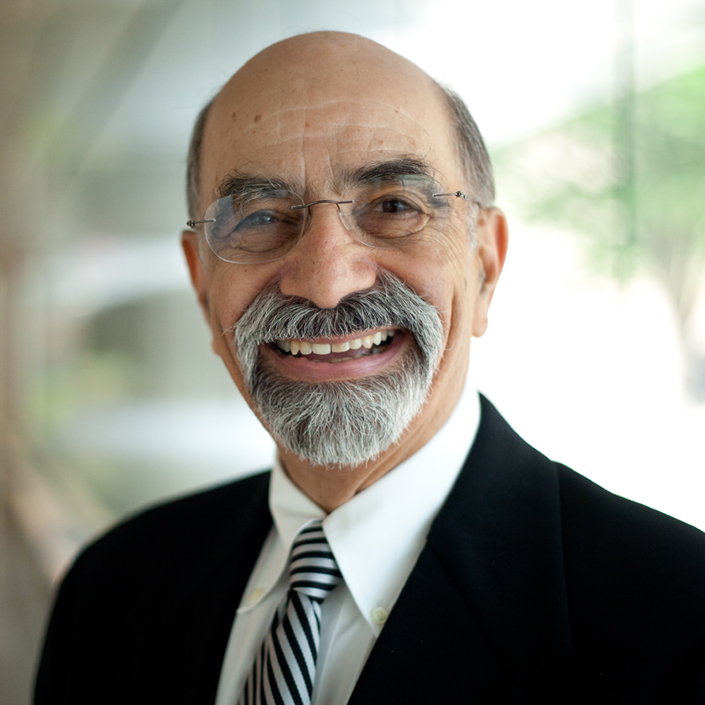
Fawwaz T. Ulaby is an internationally renowned researcher in the fields of terahertz technology and microwave remote sensing.
Ulaby, who designed the first radar to fly in space, served as the founding Director of the NASA-funded Center for Space Terahertz Technology, as well as other large, interdisciplinary NASA projects aimed at the development of high-resolution satellite radar sensors for mapping earth’s terrestrial environment. These remote sensing systems now fly aboard satellites operated by NASA as well as the European, Canadian, and Japanese space agencies.
His remarkable contributions to the field of engineering education and research have been recognized with numerous honors, including election to the National Academy of Engineering, as well as the IEEE Edison Medal, IEEE Electromagnetics Award, the William T. Pecora Award (for shaping the direction of the space program in microwave remote sensing), the James H. Mulligan, Jr. Education Medal, the IEEE GRSS Education Award, the HKN C. Holmes MacDonald Outstanding Teaching Award, and many more.
Ulaby’s dedication to the education of students is legendary at Michigan, and led to him receiving the HKN Teacher of the Year award three times. He has published 16 books, including the highly successful Fundamentals of Applied Electromagnetics, and initiated the Free Electrical Engineering Textbook Initiative, which already has saved an estimated $10M in textbook costs to students.
As a leader in the professional community, Prof. Ulaby’s influence has been far-reaching. He served as founding President of the IEEE Geoscience and Remote Sensing Society, as Editor-In-Chief of the Proceedings of the IEEE, and as Vice President for Research at the University of Michigan. More recently, he was founding Provost and Executive Vice President for Academic Affairs of the King Abdullah University of Science and Technology (KAUST) in Saudi Arabia. In addition, he serves on the National Academies Committee on Human Rights.
Ulaby retired from the University of Michigan in 2021 as the Emmett Leith Distinguished University Professor of EECS, Chen-To Tai Professor of Engineering, and Arthur F. Thurnau Professor.
 MENU
MENU 
